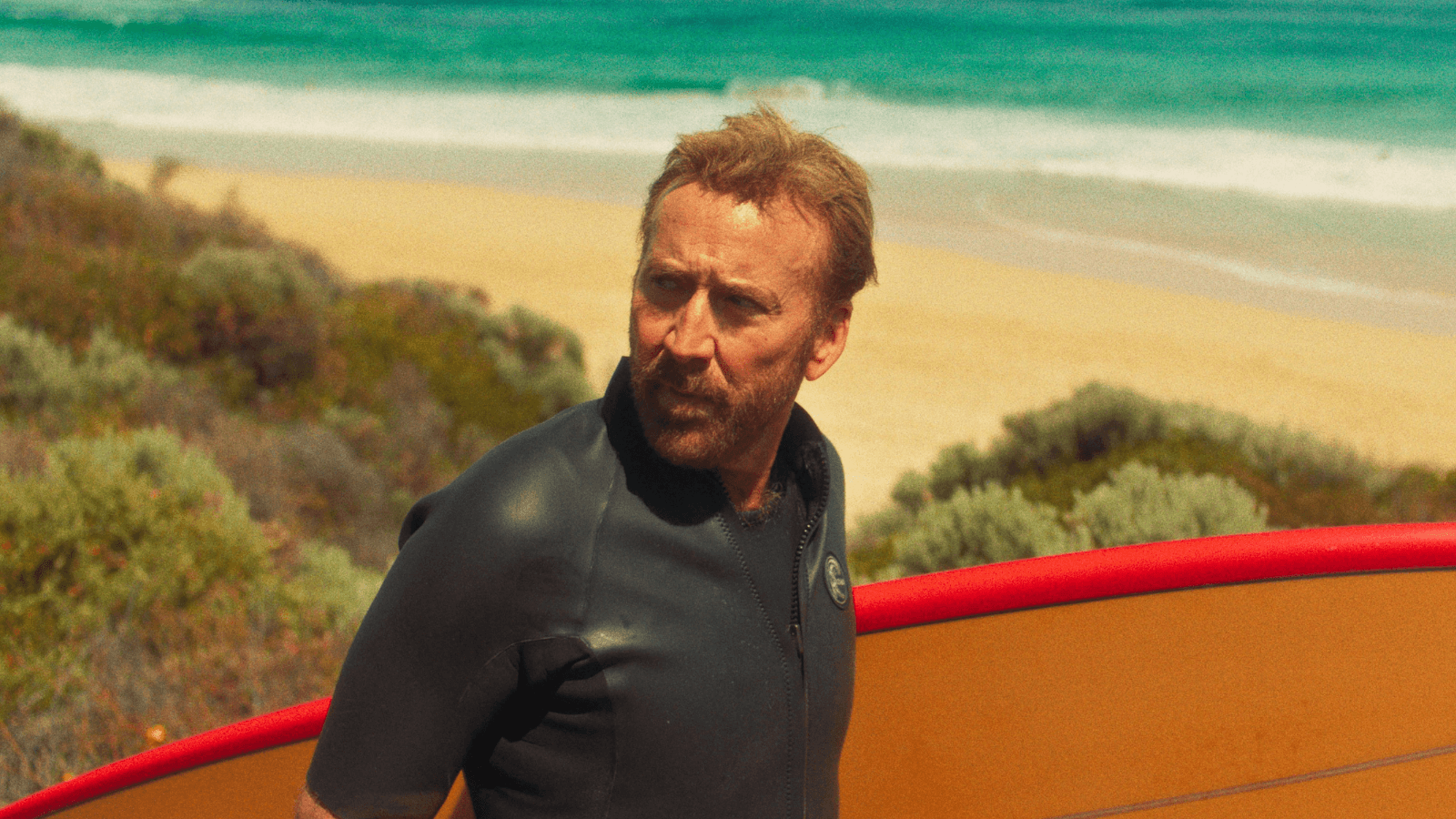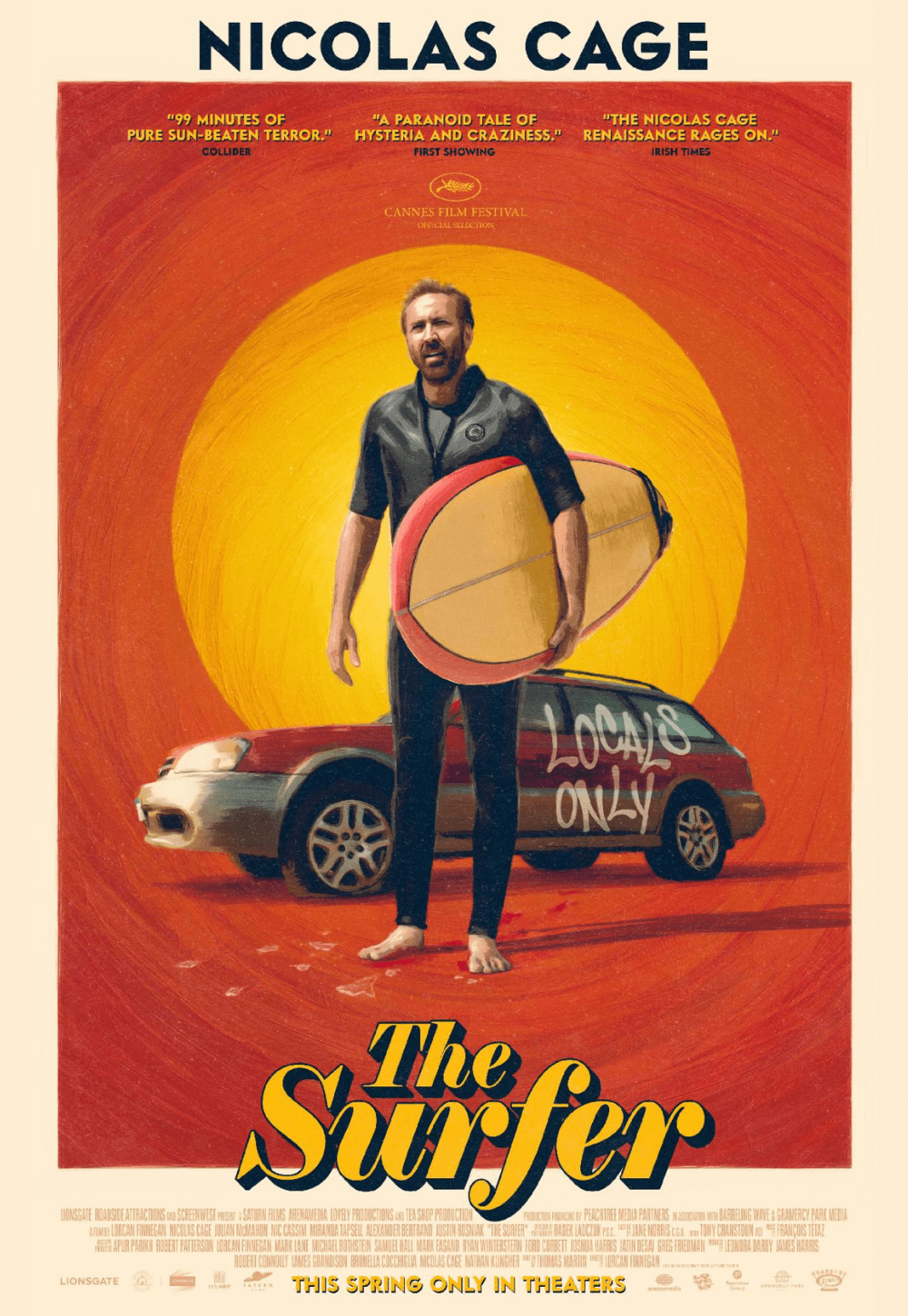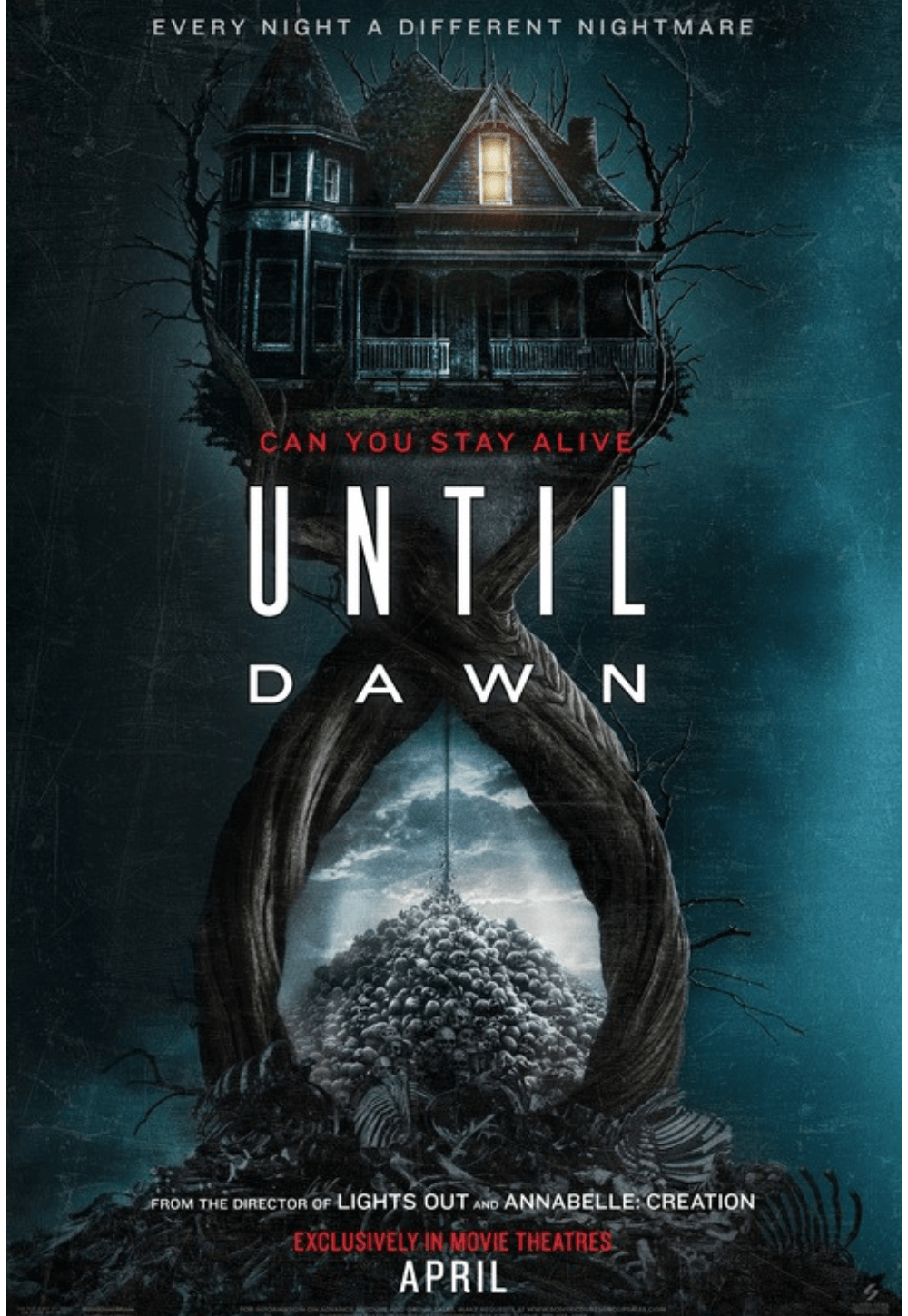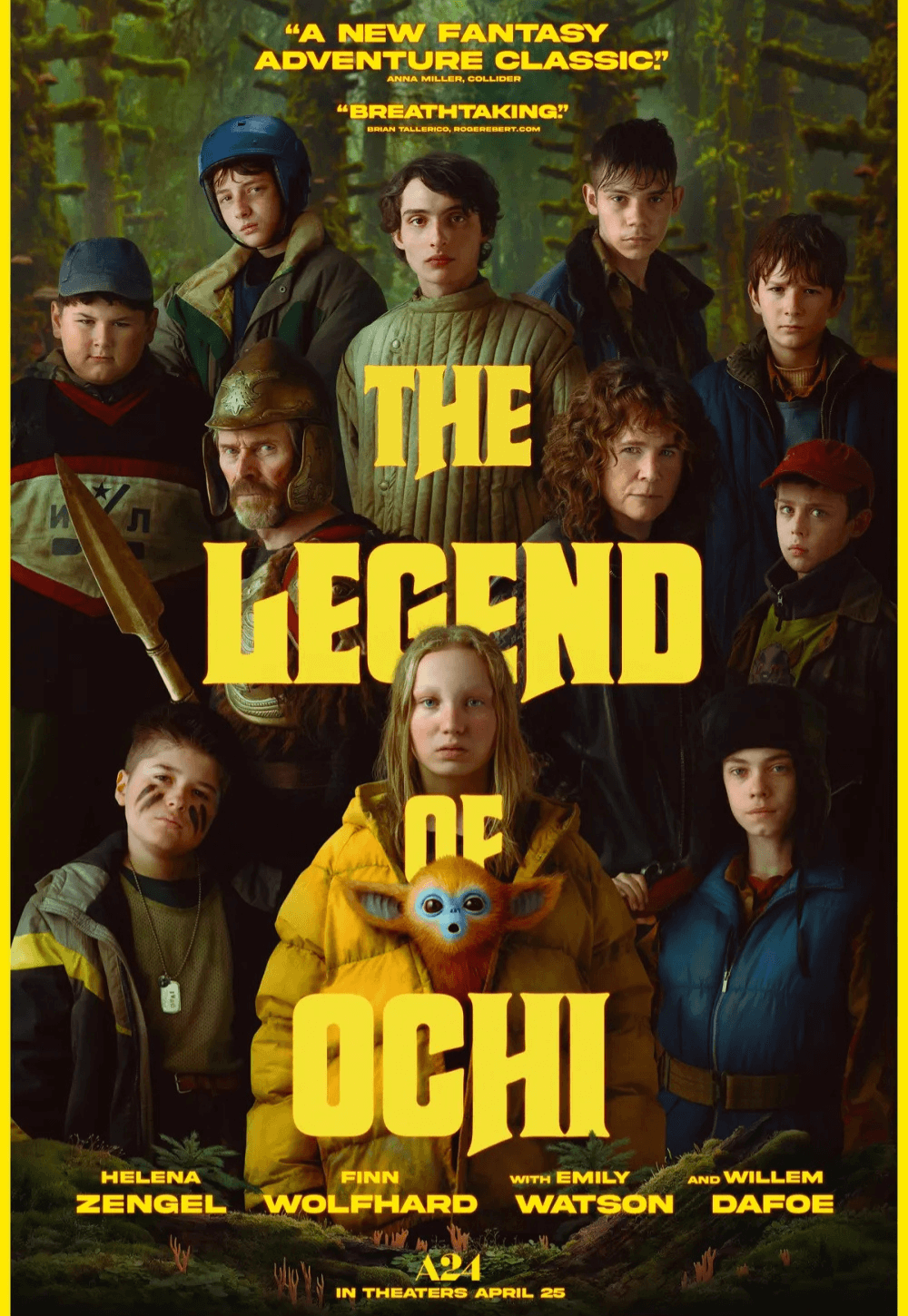
The Surfer
By Brian Eggert |
This film was screened at the Minneapolis St. Paul International Film Festival. Lionsgate and Roadside Attractions will release The Surfer in theaters on May 2, 2025.
The Surfer stars Nicolas Cage. For some, that’s interest-piquing enough to justify a watch. However, Cage’s presence has a hit-or-miss track record, with the hits (Pig, 2021) far more infrequent than the theatrical misses (Renfield, 2022) and direct-to-streaming abominations (too many to list). The movie, which debuted at the Cannes Film Festival last year, ranks among the most entertaining and culty of Cage’s recent efforts, with Irish director Lorcan Finnegan embracing his star’s extratextual Cage-ness and inbuilt irony. The question isn’t just how Cage will interpret the role; it’s what bizarro flourishes he will bring to the performance, often distracting, pleasurably so, from the film proper. Working from a screenplay by Thomas Martin, Finnegan also contracts a virulent strain of Ozploitation nostalgia by adopting an aesthetic worthy of early Nicholas Roeg’s Australian films—see Walkabout (1971) and The Man Who Fell to Earth (1976)—and a general ‘70s vibe. Savvy viewers will spot thematic similarities to other Ozploitation classics, such as Wake in Fright (1971), that expose toxic male behavior and bonding rituals. The Surfer works because it captures the tone of these Aussie classics, but more so because Cage gives another memorably unhinged performance in this surreal tale about a crisis of masculinity.
Martin’s screenplay and Finnegan’s playful, nightmarish style heighten the tension with a pressing sense of fate and a teasingly ouroboros narrative structure, both wrapped around the protagonist’s throat, suffocating him. Cage plays an unnamed businessman in denial about his pending divorce, desperately trying to manufacture some memories with his uninterested teen son (Finn Little). He takes the boy to an isolated bay in Australia, a blistering but dreamlike spot where Cage’s character grew up—he moved to the US as a child, which explains his accent. He hopes they will bond over surfing, but before they can reach the water, a local clan of pumped-up alpha-male surfer jocks led by Scally (Julian McMahon), their machismo shaman, warns him, “Don’t live here, don’t surf here.” Despite it being a public beach, these “Bay Boys” back their curt order with threats, vandalism, theft, and assault, making it impossible for our beleaguered hero not only to surf but, eventually, to leave the parking lot.
The descending chimes on a mark tree in François Tétaz’s score signal the downward spiral to come. Cage’s character obsesses over delivering comeuppance to the Bay Boys after they emasculate him in front of his son. From a spot on a hill, he spies their activities in a beach bungalow, while they chant Scally’s maxim: “Suffer. Surf. Suffer. Surf.” And indeed, Cage must suffer before he can surf. Moreover, Cage’s character intends to buy an elaborate beachside home, his dream house, which his grandfather once owned, to capture his sense of what it means to be a paterfamilias. Only he doesn’t quite have the funds. Frantic calls to his real estate broker, his office about some impending deal, and his soon-to-be-ex-wife underscore his desperation. And then there are the Bay Boys, who torment the sun-scorched man, preventing him from getting clean water or food. They also have the sympathies of the local cops, who seem to conspire to drive the poor yuppie insane.
Under sun-bleached hair and a beard, Cage gives one of his more fitting performances, given that the situation has understandably frayed his characters mind—until there’s a sneaking suspicion that he might end up like the desperate old codger living out of his car in the parking lot. Perhaps he is that old man, and he’s merely reliving a series of fateful events. One also wonders if, regardless of his luxury car, Cage’s character has nowhere else to go. His reluctance to leave the lot and situation behind soon devolves into a heightened, hilarious, yet maddening tone, further exacerbated by bizarre ravings due to his overexposure to the sun. Finnegan and cinematographer Radzek Ladczuk give the proceedings a part throwback, part absurdist style, deploying long zooms, washed-out colors, and arch angles to accent the increasingly grotesque and unreal situation.
Just when you think The Surfer has been written so Cage could give another bonkers performance, Finnegan returns the material to the realm of relative sanity in the poignant finale. At the heart of this film is a crisis of masculinity, tied up in the death of the protagonist’s father, the expectations he puts upon himself as a would-be family man, and his inability to, as Scally would say, embrace his “inner animal.” All of these superficial, rather ludicrous social ambitions prove hollow and fantastical for Cage’s character, suggesting the only real resolution to such a crisis is stepping away from their rigid demands and following his own path. While the film parks in a relatively sane lot, the warped ride there can be entertainingly bizarre. It adds another credit to Cage’s inspired, if sometimes weirdo resume, particularly in recent years with Mandy (2018), Color Out of Space (2020), and Dream Scenario (2023).

Consider Supporting Deep Focus Review
If you enjoyed this piece, I hope you’ll consider supporting the site through Patreon or a one-time donation. Deep Focus Review is an independent source for movie reviews and in-depth critical analysis. Contributing Patrons receive early access to new reviews and essays, along with a closer connection to a community of fellow film enthusiasts. Your support directly helps cover site maintenance, research materials, and the time needed to produce quality writing. If you enjoy my work, please join me on Patreon or show your support in other ways.
Thank you for your readership!
Brian Eggert | Critic, Founder
Deep Focus Review






